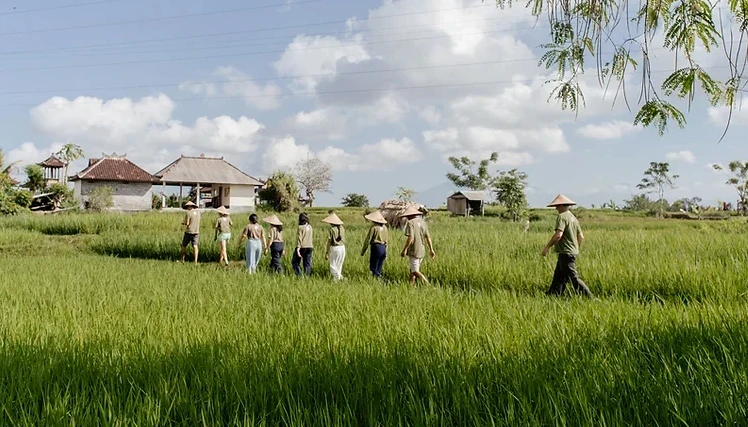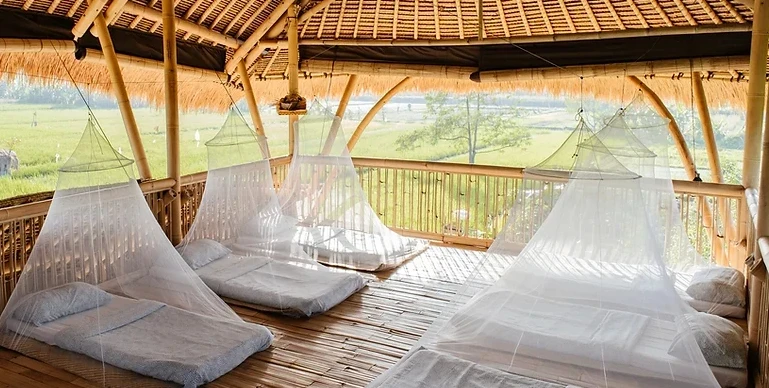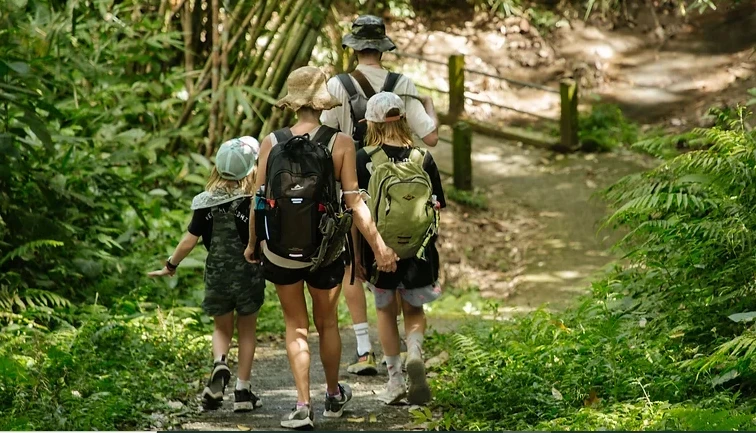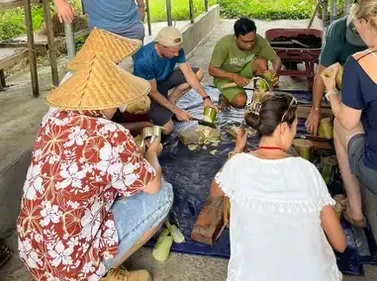Everyone visiting a new country wants to connect with its roots and feel its essence. One of the easiest ways to do this is by engaging with its fertile soil. Some tourists are curious to experience firsthand what it’s like, for example, to cultivate rice in tropical climates.
As discussions about the future of tourism on Bali intensify, a group of farmers, tourism experts, and public figures has come together to revolutionize rice cultivation, demonstrating that travel experiences can go beyond typical sightseeing.

Astungkara Way is a regenerative tourism initiative as well as an agricultural movement that is transforming the face of tourism on the island. It encourages Balinese farmers to revive traditional and natural farming methods without using chemical fertilizers, pesticides, or herbicides. These harmonious, integrated farming systems were once the norm, but due to the need for higher yields, farmers shifted to more intensive methods that negatively impact the environment.
Astungkara Way activists aim to empower the next generation of farmers by providing them with tools, training, and resources to build a sustainable and prosperous future. The Astungkara Way training center is designed to spread knowledge of agriculture to both local farmers and tourists. The term “Astungkara” comes from Hinduism and translates as “May the will of God be done!” Balinese people traditionally use this phrase before beginning any activity. The mission of the project is to provide travelers with an authentic experience that not only enriches their lives but also has a positive impact on local communities and ecosystems.
As valuable rice fields in Bali and other Indonesian islands are increasingly converted into commercial and tourist sites, projects like Astungkara Way aim to popularize restorative development, benefiting local communities, tourists, and the fertility of the soil.

One of the experiences organized by Astungkara Way is a 10-day hiking trail from the southern coast of Bali to the north of the island. This has been open to tourists for several years, with limited spots that sell out annually. The shortest option, both in time and distance, is a 2-day, 1-night stay in a Balinese farmer family’s home, allowing guests to participate in farm activities. This local village immersion experience costs 2 million rupiahs for adults and 1.6 million rupiahs for children. Alternatively, visitors can join a half-day farm tour or an overnight trip. So, be ready to put on a traditional caping hat, grab a hoe, and after some enjoyable physical work, sleep outdoors under a canopy.
Astungkara Way also offers a range of 2- to 5-day hikes through beautiful, less-touristed regions of Bali. For those who love long hikes and are physically prepared, there are options for jungle treks or waterfall explorations.

These hikes are ideal for those with time for a multi-day adventure, but for those interested in learning about regenerative tourism and traditional farming, a one-day or half-day visit to a permaculture farm and rice fields will be a life-changing experience. Here, tourists not only learn about rice farming but also form close connections with the farmers and Mother Earth.

Visiting local wisdom keepers and farming communities along these routes proves to be one of the most fascinating, educational, and affordable ways to explore the island.
Astungkara Way, featured in National Geographic, has earned praise from researchers, environmentalists, conservationists, and various communities. Thanks to the project’s programs, young farmers are reconnecting with their cultural heritage and gaining the skills to bring Bali into a new era of regenerative agriculture. Currently, 200 local farmers are involved in the project. Astungkara Way offers comprehensive training and microfinancing opportunities. The regenerative farming methods used by Astungkara Way and partner farmers help restore soil fertility and conserve the island’s biodiversity.
This extended translation retains the depth and nuance of the original text. Let me know if you need further adjustments!
Sources: astungkaraway.com
You can add one right now!